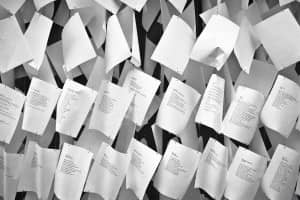 There is a lot of talk about the value and importance of role models, particularly in the diversity arena. Stonewall recently published their role model guide, organisations like the 30% Club talk about the importance role models in addressing gender equality in the boardroom and then there is the great work of Diversity Role Models in schools – to name just a few.
There is a lot of talk about the value and importance of role models, particularly in the diversity arena. Stonewall recently published their role model guide, organisations like the 30% Club talk about the importance role models in addressing gender equality in the boardroom and then there is the great work of Diversity Role Models in schools – to name just a few.
Role models offer tangible evidence that people who share our gender, ethnicity, culture, sexual orientation, class, disability, religion or other important aspects of our identity are out there and thriving. They feed our appetite for stories that prove success does not have to look and sound one way.
This focus on role models is a great thing – but the term itself comes with baggage. It can bring with it connotations of infallibility, extreme seniority, perfection, super-human achievement and perhaps even arrogance. It can seem like a precarious pedestal for the few not the many. We tend to find it easier to point to people who have been role models for us than we do to accept that we may be role models ourselves.
Until each of us embraces our potential as role models, any progress towards truly inclusive workplaces will be pedestrian at best. We need to reclaim the term “role model”, make it more accessible and then own up to being one.
It is an uncomfortable fact that if there are less of “you” in your workplace then you’re going to be more conspicuous. If you are a senior woman in a law firm dominated by male partners, then people will be watching you, making value judgements and also drawing conclusions about what your example means for them. A young woman who has just joined the firm may be scanning for clues about what it takes to get on round there. She will mentally file away how a meeting was run or the dynamics of an exchange with a Board member. She may start to change her own behaviour as a result, or perhaps form opinions about whether this is – or isn’t – the place for her to pursue her career.
A male partner in that same law firm could easily reinforce the sense that difference isn’t welcome and he is part of an exclusive elite. But that need not be the case. He could instead be open about his own sense of difference – perhaps his upbringing, schooling, invisible disability or family situation. He could be transparent about how people are promoted, actively sponsor others or quite simply demonstrate a day-to-day receptiveness to alternative points of view.
The point being made here is that we are all role models – good, bad or indifferent – because we affect those around us. The choice is not whether we are a role model or not but rather what quality of role model we want to be. On this basis a positive role model could be defined as someone who “understands their potential to influence others and intentionally exercises that power to help create more inclusive environments.”
The best role models are very much themselves – they are authentic and therefore not exactly like any other role model. That said there does seem to be some common ground amongst those who are willing to stand up and be counted. They share a sense of responsibility towards others, are at ease with their own fallibility, demonstrate that their behaviour aligns with their values, have a good sense of self-awareness and tend to reflect on their actions so they can learn from them. They also have gumption – a determination to be themselves, challenge the unacceptable and see beyond their own self-interest. They don’t mind that they won’t be everyone’s cup of tea – but know that their example will be useful to some and that’s enough.
Role models are ordinarily extraordinary. So this is a call for a New Role Model Army. The more there are of us there are out there, at all levels of organisations and across all sectors, the better. We will tell a richer range of stories and offer more possibilities of being different and successful to our friends, colleagues, employers and the generations that follow us.

Great blog post Jo! I’ve been thinking a lot about role models since the launch of the Stonewall report and at world pride I saw people had stickers on saying ‘I’m a diversity role model’ which I thought was a lovely idea.
I was told I was a role model a few years ago and my reaction was ‘no, not me, I’m not senior enough’ but the truth is that anyone can be a role model. The role models themselves need to get better at accepting this compliment and supporting others, and we all need to get better at telling people they are role models.